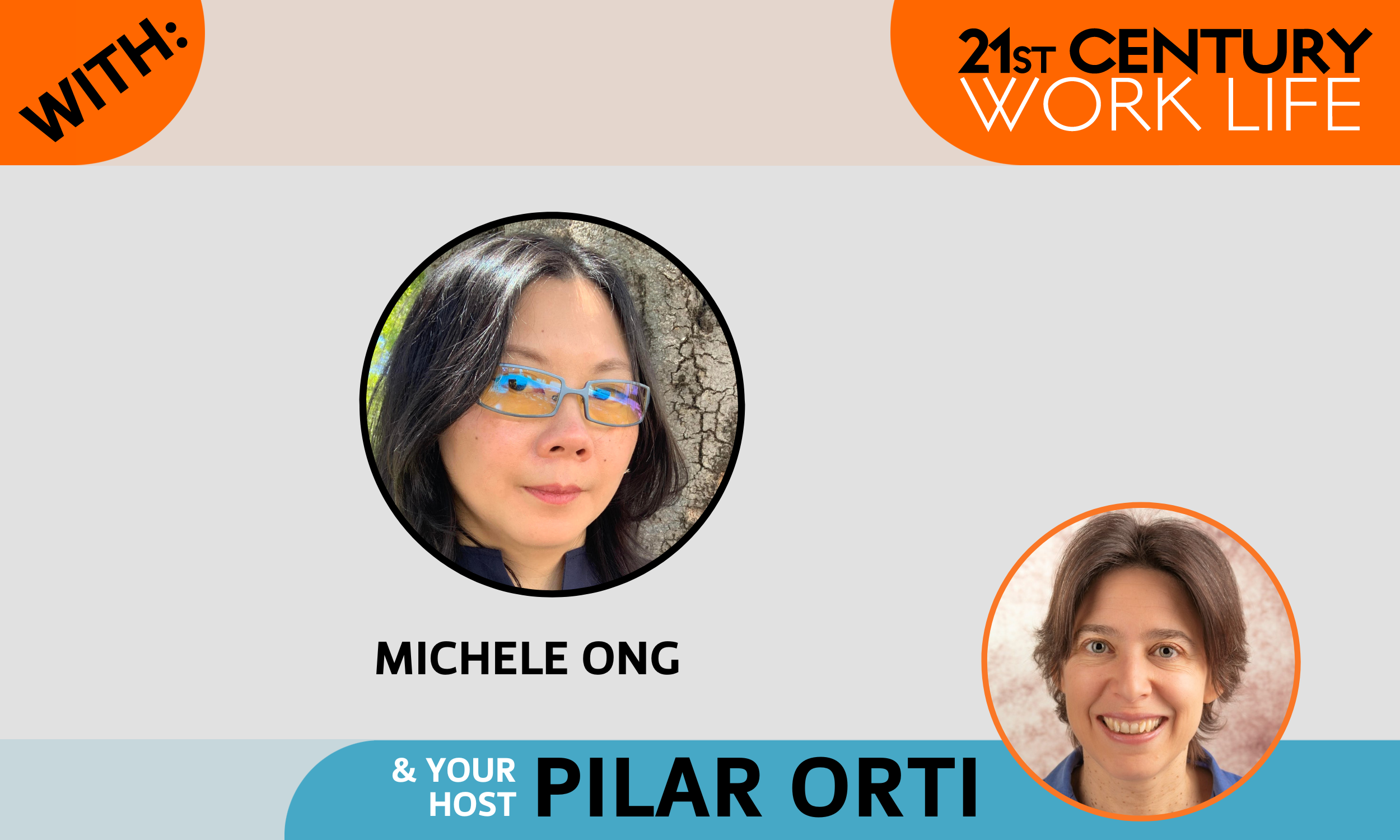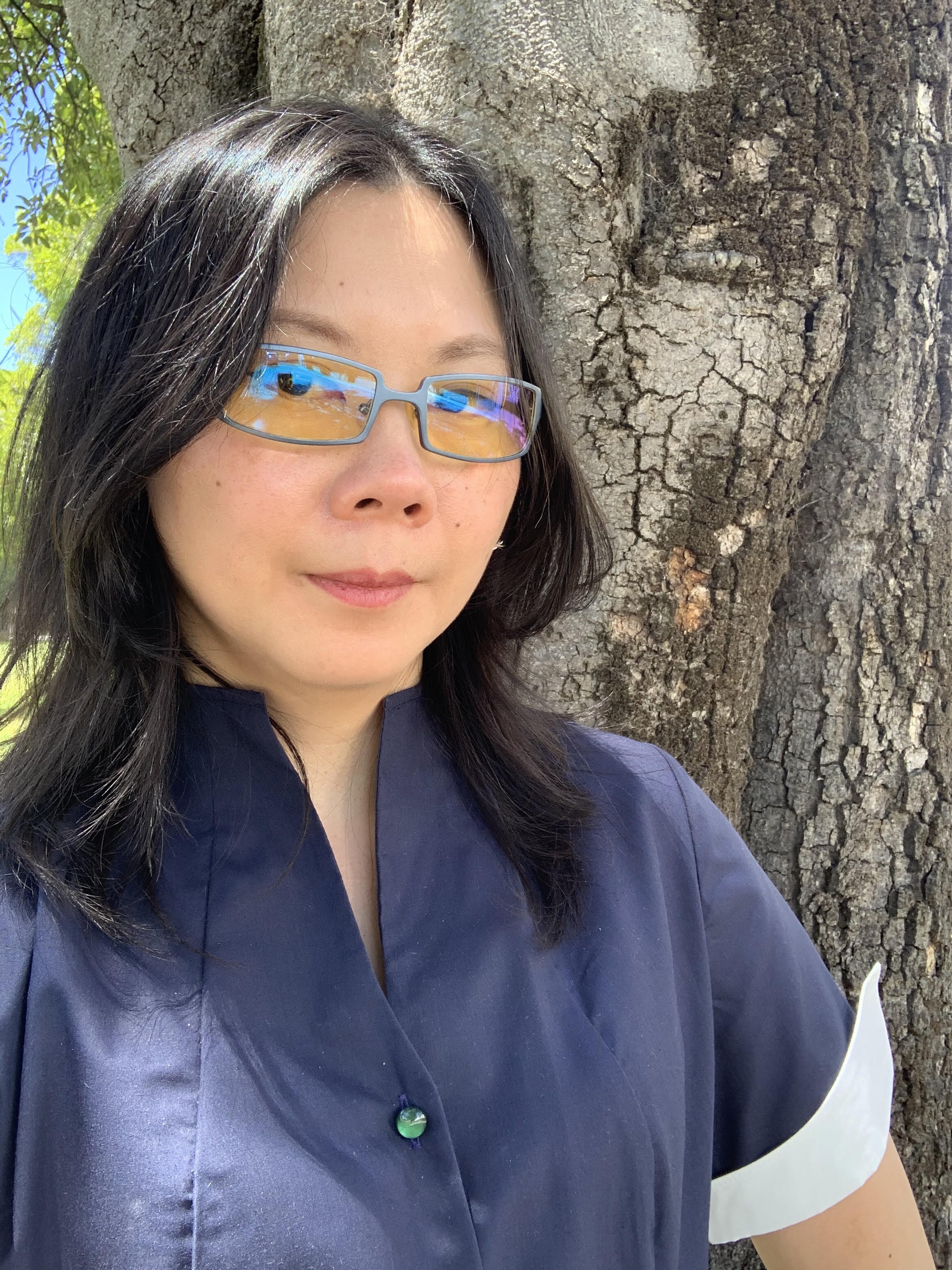WLP313: The Joys of Being a Remote Worker
Michele Ong has been working remotely in global teams for over 10 years - and she loves it! She tells us why and shares how the profile of remote work in Australia has changed over the last years.
Michele Ong is a “creator, technologist, developer, and tinkerer. Continuous learning is my jam. And host of the STEAM powered podcast.
Michele’s day job is as a programmer, so there’s constant learning involved. But even outside of work, she is always learning, and really enjoys it!
Michele has been working from home for over 10 years now. She is based in Perth, Australia. The view of remote work has changed over the last few years in Australia. When Michele started in 2008, it was uncommon for people who worked remotely internationally, even telecommuting jobs were difficult to find. Michele found it really hard to find remote work, and she found employers found the concept strange, and recruiters expected people to relocate - rather than offer telecommuting.
It continued to be the case for a long while, even the year before Covid, that people were still offering Michele jobs - but only if she relocated to their main base. So Michele ended up working with people in Europe and the US, where remote work was more common. (However, the job offers came back to her once the pandemic had hit and remote work became common.)
Pilar is curious about whether companies will continue to be open to remote work. Michele is seeing a lot of people who can still work remotely to some extent, as most organisations are adopting hybrid ways of working. Michele gives the example of one of the guests on her show, a software engineer who is chronically ill and used to have a lot of trouble travelling into an office, whereas now, she can work from home and manage her symptoms (which are difficult to predict) much better. (You can listen to more on this in episode 42 of the Steam Powered podcast.
Will organisations start to also discover the talent in a workforce that has traditionally have to remain at the edges of the workplace? We hope so!
Michele is currently freelancing and taking on contract work every now and then, as the contracts are not as flexible, and they might overrun. Michele builds websites and all kinds of web applications, integration etc.
12.30MINS
Michele expands on what she means by contract work being “less flexible” than freelancing, even if it’s remote. Michele has a portfolio of clients and so she needs the flexibility to manage them in parallel, otherwise she might end up having to overwork. And contracting often involves being in the client’s office, which Michele often finds an unproductive environment.
Flexibility is about being able to take breaks when she needs them, change tasks when she needs to and go for a walk when the sun is out etc. Even with freelancing, there are still limits to what she can do.
Michele talks about her experience of working globally, for example as a team of developers, distributed across the world. They communicated in ways in which we are familiar with, like email, video meetings, Slack… They treated chat asynchronously - being respectful of people’s time and availability. Co-ordinating global meetings is always challenging, and occasionally they had to meet during out-of-work hours.
Michele worked as part of a global team, who would work with different clients, operating like any kind of team. The companies she worked for directly were designed to be mobile and flexible, but even though the projects changed often, the team remained stable, operating like an in-house team, so there was a feeling of having colleagues.
What Michele enjoyed more about those contracts was the flexibility and getting to know people from across the world, to have a multicultural space to operate in. This is something that often doesn’t happen if your workplace is based in your own country. (This was music to Pilar’s ears, who the day before the recording 16 Aug 2022 read an article about the chair of JPMorgan saying remote work was terrible for diversity…)
Michele is now freelance, because she needed a more flexible schedule to look after her young child. So how does she continue learning from others? Her podcast, STEAM powered. One of the reasons why she started the podcast was to learn from other people, especially about things not directly related to the work.
The online world is full of communities, for developers and other fields, so it’s great to connect with a wide range of people without working directly with them.
Michele Ong
25.58MINS
One of the biggest challenges when working with a global team is the difference in timezones. And also travelling for work, to meet others, but it’s not as amazing as some people think. Getting together with people is great, but it can also be tiring.
Having the best tools to communicate effectively is also a challenge, as is the culture around communication. Setting up a framework within which people use these tools, and respecting others’ boundaries is key to making them work. You can’t translate the one-one mapping that you have in a physical environment directly to the digital space. There is much less spontaneity involved, because you don’t know what people are doing at the other end.
There are all kinds of ways of communicating in a team, but you need to agree about them. Teams that adopted remote work during the pandemic were using work online tools to remain connected, and this habit is being incorporated into new ways of working remotely. However, the beauty of remote work is to not have to be connected to each other.
Michele finds email really useful, because it’s asynchronous, you can be more wordy and others can take their time to be remote.She’s horrified at those who give support through Slack or Discord (chat-like spaces), as it’s more difficult to track what’s going on.
Michele works with clients who are looking for remote freelancers, who have lower overheads, don’t need to communicate with them continuously and who can work directly with them. Just as the freelancer wants independence and autonomy, there are clients who want to work with people who are independent and can work autonomously.
To wrap up, Michele introduces the STEAM powered podcast, where she talks to women about how they got into STEAM and what advice they have for others. She is learning so much from their diverse experiences, and their own journeys. (You can to Michele talk about her journey on podcasting and setting up the STEAM Powered podcast in episode 31 of Adventures in Podcasting )
Michele has been able to travel and work for companies she wouldn’t have been able to work for unless she relocated, thanks to remote work. She reminds listeners that there is no longer a need to narrow your scope to your geographic region, there is so much more!
And Michele has some reading and listening recommendations for you:
GRIT by Angela Duckworth, which she’s listening to at the moment, and she also recommends her TedTalk.
If you’re looking for a podcasts, she enjoys: How to Fail with Elizabeth Dale, 99% Invisible
Don’t forget to keep in touch with us and tell us what you think. We have a form for you to contact us, or you can tweet Virtual Not Distant, or Pilar directly, with your thoughts and ideas about anything we have discussed in this episode or others. AI-generated transcripts are available on request.
If you like the podcast, you'll love our monthly round-up of inspirational content and ideas:
(AND right now you’ll get our brilliant new guide to leading through visible teamwork when you subscribe!)


